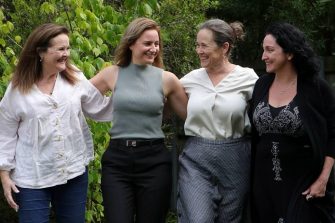
To ensure inclusion of those who are often excluded from decision making in research and program design, we use qualitative research and co-design with people with lived experience, consumers, communities and service providers. We use innovative methods to understand how people make meaning of their experiences and to understand complex social processes and socio-political change to improve prevention, early intervention and policies and programs to improve health and well-being. We support knowledge translation with ownership and engagement of end users from the beginning of the research process.
Qualitative and co-design methods
We use our qualitative and co-design expertise in service development, evaluation, and novel approaches to generate new insights. Focus areas include primary and tertiary health care, mental health, gender equity and health including gender-based violence, Aboriginal and Torres Strait Islander health and well-being, Culturally and Linguistically Diverse Community health, adolescent health, communicable diseases and vaccination, non-communicable diseases, sexual and reproductive health, and the health of people in prison or at risk of imprisonment.
We collaborate with consumers and community groups, health, education and other government departments, the non-government sector, and academics across Australia and internationally.
Our expertise
- Qualitative methods to understand lived experience
- Innovative approaches, such as arts-based methods and digital text mining
- Intervention and service design and delivery
- Participatory action research
- Deliberative research approaches
- Consumer- driven research and consumer involvement and
- Co-design and co-production methods
- Process evaluation
- Understanding the patient or client experience
- Stakeholder engagement
- Using qualitative methods in mixed methods designs







